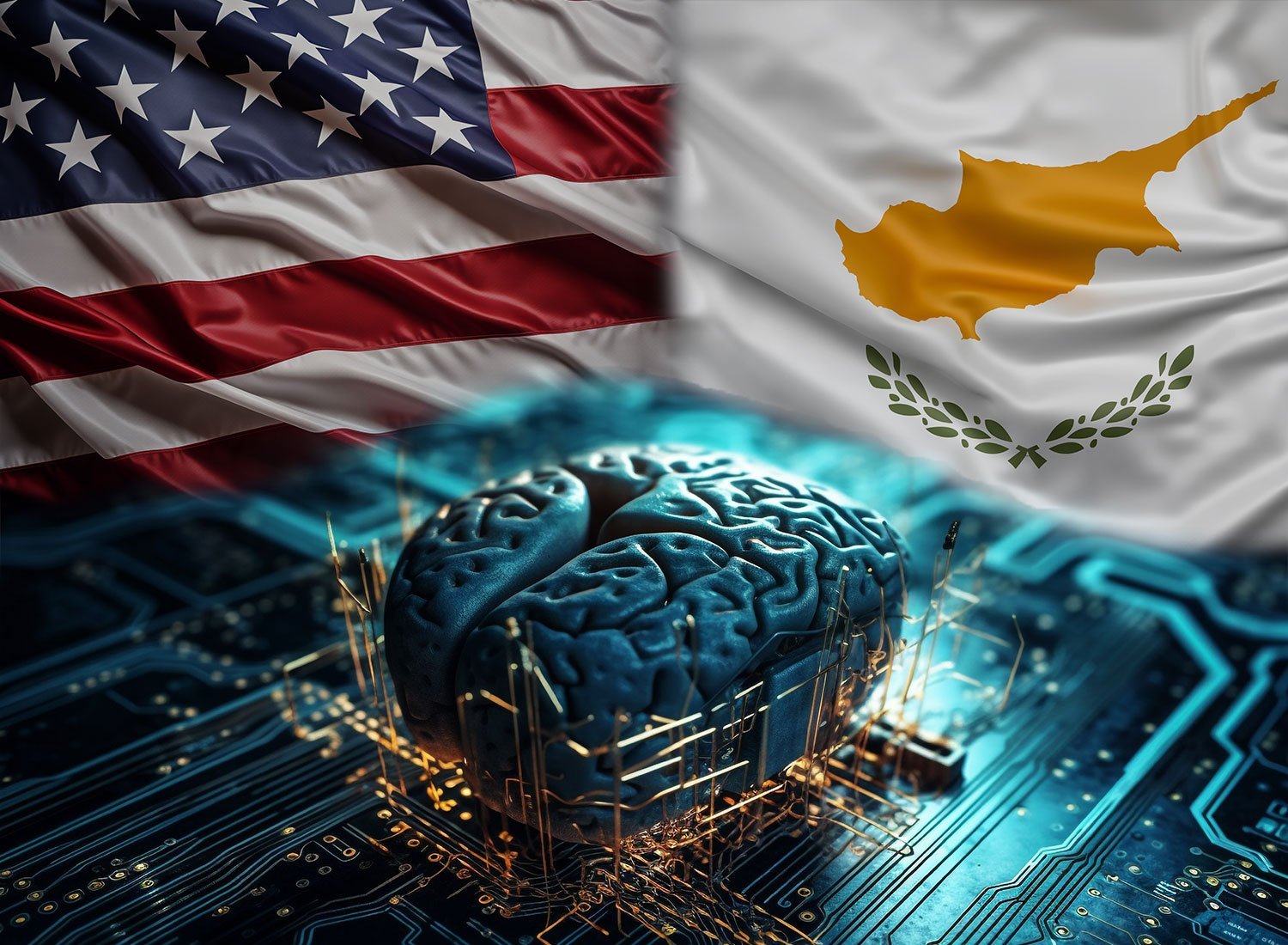An interesting development from the other side of the planet is coming to an effect soon, putting the United States on top of the Artificial Intelligence hill. A new governance policy is about to take place and brings 100 designations in high places.
European Union follows but slowly, as the discussion for the use of AI is ongoing and it will take some years for a full regulation. But there is a draft of their ideas and concerns as we going to see below. The real question though is what is Cyprus doing right now regarding AI and what can the third largest island of the Mediterranean learn?
Is the USA a step forward?
On Thursday 28/03/2024, Vice President Kamala Harris announced that the White House Office of Management and Budget (OMB) is issuing OMB’s first government-wide policy to mitigate risks of artificial intelligence (AI) and harness its benefits. In simple words, it is a directive, part of President’s Biden policy that was signed last October, and tries to bypass the bureaucracy and adopt this cutting-edge technology.
The new AI governance policy aims to face the risks and τhe issues that have come up considering transparency. It also puts some asphalt down for a roadmap about federal agencies’ management and usage of Artificial Intelligence.
The 34-page memo requires agencies to set guidelines for AI applications that might affect the rights or safety of Americans, broadens the scope of information shared in their inventories of AI use cases, and mandates the appointment of chief AI officers within agencies to supervise their utilization of this technology.
But this is something that everyone expects from an advanced state. To regulate and show some concern for the security of its citizens. As Mrs. Harris said, “President Biden and I intend that these domestic policies will serve as a model for global action”. Hold that thought.
What is important in this move, is that “The Administration has committed to hire 100 AI professionals by Summer 2024 as part of the National AI Talent Surge to promote the trustworthy and safe use of AI”.
To be more specific, the US will designate within 60 days, a Chief Artificial Intelligence Officer (CAIO) across every agency with sole scope, as the memo states, to strengthen AI Governance. According to the policy, agencies must assess and oversee the potential impacts of AI on the public, with a focus on mitigating the risk of discrimination. This involves measures such as enabling airport individuals to opt out of facial recognition by the Transportation Security Administration without experiencing delays or losing their position in queues. Additionally, in healthcare diagnostics, AI usage would necessitate human oversight, as outlined in a fact sheet distributed by OMB.
The directive mandates federal agencies to create AI governance boards responsible for coordinating and setting guidelines regarding AI technology implementation within each agency. According to the White House, departments such as Defense, Housing and Urban Development, and State and Veterans Affairs have already formed such boards. Additionally, by December 2024, federal agencies are required to implement specific safeguards, whenever they employ AI in manners that could affect the rights or safety of Americans.
America will be on top of the tech world when CAIO, as the county will have a more clear strategic development and deployment at the national level. The person who will take this position will have a crucial role in formulating AI policies and regulations that promote innovation, ethical use, and responsible deployment of AI technologies, and many more.
The EU and AI
If you search on Google “what is the stance of the EU on AI”, the first thing you get is a quote from June 2023 – “As part of its digital strategy, the EU wants to regulate artificial intelligence (AI) to ensure better conditions for the development and use of this innovative technology”. How they will do that? With an EU AI Act, of course.
European Union recognises that Artificial Intelligence can affect everyday life in various ways, creating opportunities but also threatening security, democracy, businesses, and even jobs.
The “unacceptable risk” as they called it, is that AI systems bring with them are considered a threat to people and will be banned. Risks such as Cognitive behavioral manipulation of people or specific vulnerable groups, social scoring with the classification of people, Biometric identification, and Real-time and remote biometric identification systems, are all off.
This April, the EU aims to adopt the agreed text, and if it passes, it will be fully applicable 24 after entry into force. However, some parts might be applicable sooner like the ban on AI systems posing unacceptable risks will apply six months after the entry into force, codes of practice will apply nine months after entry into force, and rules on general-purpose AI systems that need to comply with transparency requirements will apply 12 months after the entry into force. Systems with elevated risk levels will be granted additional time to adhere to the stipulated requirements, as their obligations will come into effect 36 months following the implementation.
Overall, the theme is more or less the same and the EU is also moving towards a more regulated environment with a secured framework.

What can Cyprus learn?
The simple answer is a lot. As we mentioned, the US wants policies about AI to serve as a model for global action. The EU is walking among these lines and surely when the EU AI Act comes into force, Cyprus as a member state along with the companies, startups, etc., will have to follow.
The problem is that these policies in the EU are time-consuming and will take about three years to come into play in Cyprus. What is needed to be done, is to take action as a nation. Cyprus can start now to form a governmental body like the United States or create legislation that will address, even temporarily, the concerns around the use of AI in the European Union.
The benefits will be plenty, and Cyprus will win a lot of time in this race. Like the CAIO in the US, the island will have someone who can provide strategic leadership in AI development and deployment. There will be coordination and collaboration between various stakeholders including government agencies, academia, industry, and civil society.
To be fair, the Deputy Ministry of Research, Innovation, and Digital Strategy is the one responsible for matters regarding AI in Cyprus. There was a draft policy back in 2020 from the Department of Electronics and Communications, but no news since then.
To sum up, a focused national effort on AI, guided by a CAIO, can drive economic growth and enhance a country’s competitiveness in the global AI market. By fostering innovation, attracting investment, and nurturing AI talent, countries can position themselves as leaders in AI research, development, and commercialization.
Effective regulation, a person in charge, and clear policies will be highly beneficial not only for the economy but also for the citizens who will enjoy the perks of this technology. AI can contribute to a safer, more inclusive, and more prosperous future, where AI technologies are harnessed to benefit society while minimizing potential risks and negative consequences.






